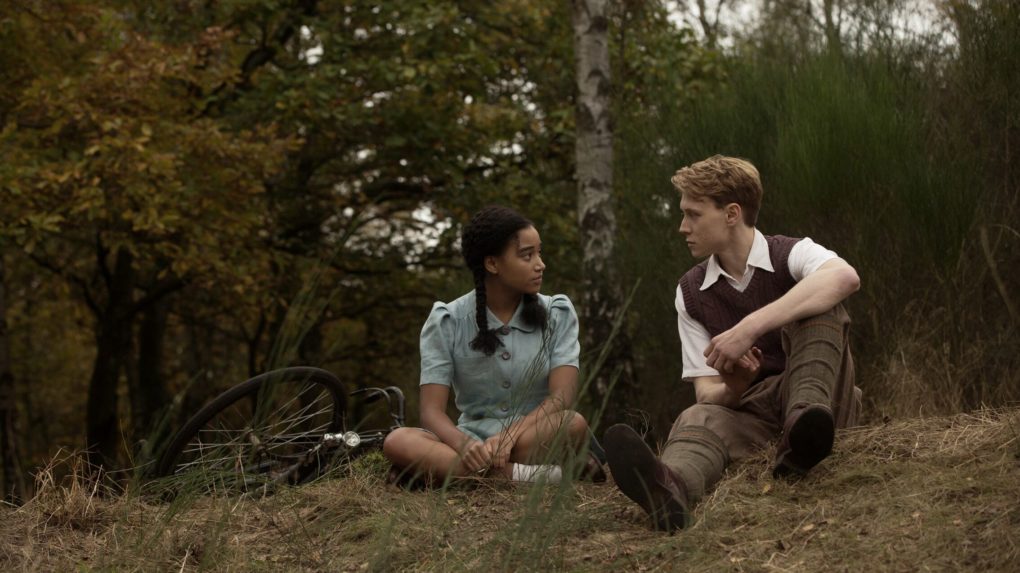
The year is 1944. Leyna (Amandla Stenberg), the teenage daughter of a white German factory worker (Abbie Cornish) and a black Senegalese soldier, is dubbed a “Rhineland bastard” and flees for Berlin, hoping to find anonymity and safety in the larger city. But, after she is kicked out of school and is forced to falsify papers stating she has been sterilised, Leyna struggles to reconcile her German identity with a country that sees her as inferior and a blight upon her white family.
In the midst of this conflict, Leyna meets Lutz (George MacKay), a member of the Hitler Youth who is eager to make his mark as a soldier and fight for his country. Despite Leyna’s mother’s reservations – chief amongst which is the fact that Lutz’s father (Christopher Eccleston boasting an accent not entirely un-reminiscent of Count Dracula) is a Nazi official – they fall for each other, beginning a romance that is as politically dangerous as it is inevitably doomed.
Director and screenwriter Amma Asante has shined in this blended genre of history and romance before, mixing fact with cinematic flair. But where previous offerings Belle and A United Kingdom had tangible, real people to follow, Where Hands Touch is a rather untidy bundle of experiences, all thrown together and named Leyna. As real and as undeniably terrible as these experiences are, it just doesn’t work, and it’s such a shame.
Every Nazi-era horror story is here and even a predictably strong showing from rising star Stenberg can’t do much to stave off the “Oh, what NOW?”’s that will likely escape the viewer’s lips throughout the film’s two hour running time. The circumstances of her birth, her little brother’s growing interest in the Hitler Youth, and her mother’s justifiable fears are wholly believable but they’re unbalanced by the awkward relationship with Lutz, the circumstances of his birth, and by the fact that (spoiler ahead) the labour camp Leyna winds up in is run by Lutz’s dad. Oh, and guess who’s working there at his father’s request?
And all that’s before we get to the strange case of Abbie Cornish’s eyebrows. Seriously, where were they?
Admittedly, history is filled with people who couldn’t catch a break, but Asante feels hellbent on making sure that Leyna is the least likely of all to catch one. It might be accurate to a point – Asante has said she did her research and combined several stories to make this one – but without the time to fully explore what’s happening, it’s a little hard to get invested in a film that feels just like a list of Awful Things. A series might have been a better idea for this particular passion project, so that problematic elements like Leyna’s anti-Semitism or Lutz’s sympathetic Nazi could have been developed, changed, and better reconciled with the story. Not excused, of course, but better constructed and explored.
Where Hands Touch absolutely deserves praise for drawing attention to a facet of the Nazi regime that often gets overshadowed by the sheer scale of the Jewish genocide, and for performances that try their hardest to overcome the occasionally exhaustingly meaningful dialogue. But the truth is that it falls frustratingly short of what it could have been, becoming lost in an awkward teenage love story that neither serves the plot nor is strong enough to hold up on its own.
https://www.youtube.com/watch?v=Yb6XBjBrrq4
![]()
![]()
![]()
![]()
![]()
TWO AND A HALF STARS (OUT OF FIVE)
Where Hands Touch, written and directed by Amma Asante, is in selected cinemas now.
